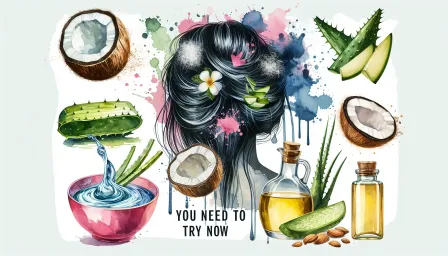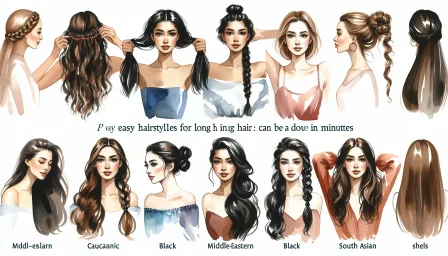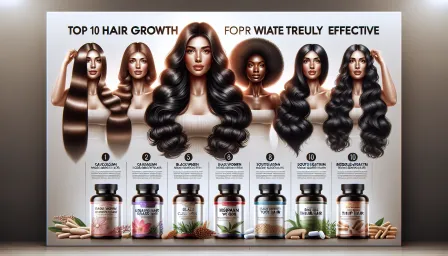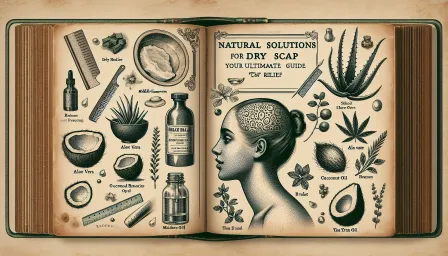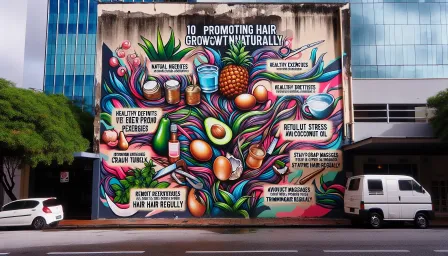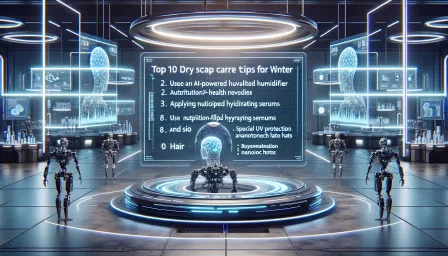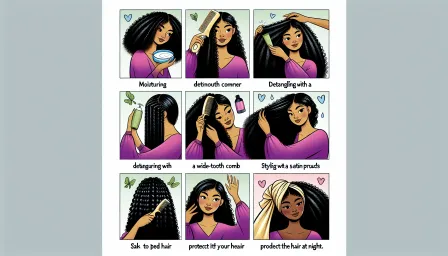Top Dry Scalp Styling Tools and Techniques for Healthy Hair
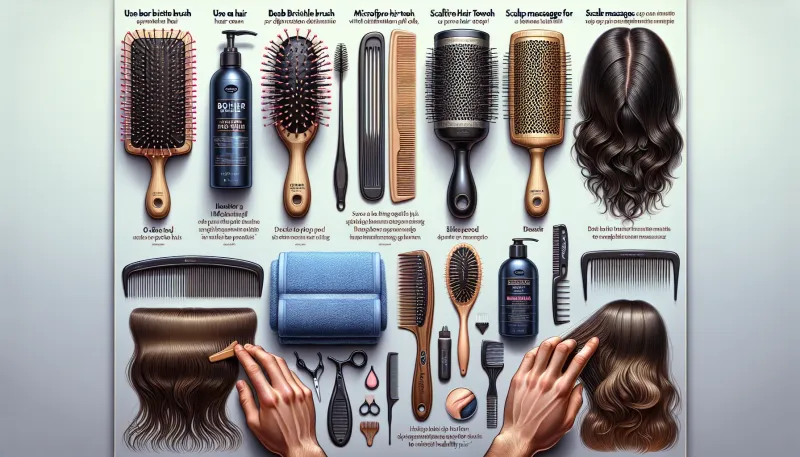
Discover the best dry scalp styling tools and techniques to maintain healthy hair. Learn expert tips and advice on treating and styling dry scalp to achieve optimal hair health.
Dealing with a dry scalp can be a challenging experience, especially when it comes to styling your hair. A dry, flaky scalp can lead to itching, irritation, and can affect the overall health and appearance of your hair. Fortunately, with the right tools and techniques, you can manage a dry scalp effectively and still achieve beautiful, healthy hairstyles. In this comprehensive guide, we will explore the top dry scalp styling tools and techniques, providing you with valuable tips and solutions to maintain optimal hair health.
Understanding the Causes of Dry Scalp
Before diving into the solutions, it's important to understand the common causes of a dry scalp. This can help you take preventive measures and choose the right treatments. Common causes include:
- Weather: Cold, dry weather can strip the scalp of its natural moisture.
- Harsh Hair Products: Shampoos and conditioners with sulfates and alcohol can dry out the scalp.
- Skin Conditions: Conditions like eczema or psoriasis can lead to a dry, flaky scalp.
- Diet: Lack of essential nutrients, such as omega-3 fatty acids, can impact scalp health.
- Dehydration: Not drinking enough water can cause overall dryness, including the scalp.
Top Dry Scalp Styling Tools
1. Moisturizing Shampoos and Conditioners
Choosing the right shampoo and conditioner is crucial for those with a dry scalp. Look for products specifically designed for dry scalp that contain moisturizing ingredients like aloe vera, coconut oil, and shea butter. Avoid products with sulfates and alcohol as they can further dry out the scalp.
2. Wide-Tooth Combs
Wide-tooth combs are gentle on the scalp and help distribute natural oils evenly through your hair. They are ideal for detangling without causing breakage or irritating the scalp.
3. Scalp Massagers
Scalp massagers can stimulate blood flow to the scalp, promoting healthy hair growth and helping to distribute natural oils. Regularly massaging your scalp can also relieve itching and improve overall scalp health.
4. Humidifiers
Using a humidifier in your home can add moisture to the air, which is particularly beneficial during the winter months. This can help prevent your scalp from becoming too dry.
5. Heat Styling Tools with Adjustable Settings
If you use heat styling tools, choose ones that have adjustable heat settings. High heat can exacerbate dryness, so it's important to use the lowest effective temperature to style your hair.
Effective Dry Scalp Techniques
1. Regular Scalp Hydration
Keeping your scalp hydrated is key to managing dryness. Use a lightweight, non-greasy oil like jojoba or argan oil. Apply a few drops to your scalp and massage gently before styling.
2. Gentle Washing Routine
Over-washing can strip the scalp of its natural oils. Aim to wash your hair no more than two to three times a week, using lukewarm water to avoid further drying out your scalp.
3. Deep Conditioning Treatments
Incorporate weekly deep conditioning treatments into your hair care routine. Use a product formulated for dry hair and scalp, allowing it to penetrate deeply for maximum hydration.
4. Avoiding Tight Hairstyles
Tight hairstyles like ponytails and braids can cause tension on the scalp, leading to irritation. Opt for loose styles that reduce strain and allow your scalp to breathe.
5. Balanced Diet and Hydration
Your diet plays a significant role in scalp health. Ensure you're consuming a balanced diet rich in vitamins and minerals, particularly omega-3 fatty acids. Also, drink plenty of water to keep your body and scalp hydrated from the inside out.
When to Seek Professional Help
While home treatments can be effective for managing a dry scalp, sometimes professional intervention is necessary. Consider consulting a dermatologist or trichologist if:
- Your dry scalp is persistent and doesn't improve with over-the-counter treatments.
- You experience severe itching, redness, or swelling.
- You have underlying skin conditions such as eczema or psoriasis that require specialized care.
- You notice excessive hair loss alongside a dry scalp.
Professionals can provide personalized treatments and recommend medicated shampoos or topical treatments that may be more effective than general over-the-counter solutions.
Conclusion
Managing a dry scalp doesn't have to be a daunting task. By understanding the causes and incorporating the right tools and techniques, you can maintain a healthy scalp and beautiful hair. Remember to choose moisturizing products, incorporate gentle styling tools, and practice regular scalp hydration. If necessary, seek professional advice to address persistent issues. With these strategies in place, you can effectively tackle dry scalp and enjoy a healthy, stylish mane.





